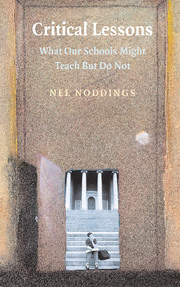Introduction
Published online by Cambridge University Press: 05 June 2012
Summary
“It is not our business,” he said, “to help students to think for themselves. Surely this is the very last thing which one who wishes them well should encourage them to do. Our duty is to ensure that they shall think as we do, or at any rate, as we hold it expedient to say we do.”
The Professor of Worldly Wisdom in Samuel Butler, ErewhonWhen the United States invaded Iraq in 2003, many public school teachers were forbidden to discuss the war in their classrooms. Such a restriction on free discussion seems outrageous in a liberal democracy. But, although free debate is rarely so directly forbidden, the suppression of discussion and critical thinking in our educational system is widespread. Usually it is accomplished by defining the curriculum so narrowly and specifically that genuinely controversial issues simply do not arise. Without controversial issues, critical thinking is nonexistent or, at best, weak. Students are encouraged now and then to exercise a bit of critical thinking in science or mathematics as they try to solve word problems or think of alternative hypotheses, but such exercises are usually constrained tightly by the topic at hand and the limited knowledge of young students. Further, this sort of critical thinking does not challenge deeply held beliefs or ways of life.
- Type
- Chapter
- Information
- Critical LessonsWhat our Schools Should Teach, pp. 1 - 9Publisher: Cambridge University PressPrint publication year: 2006



